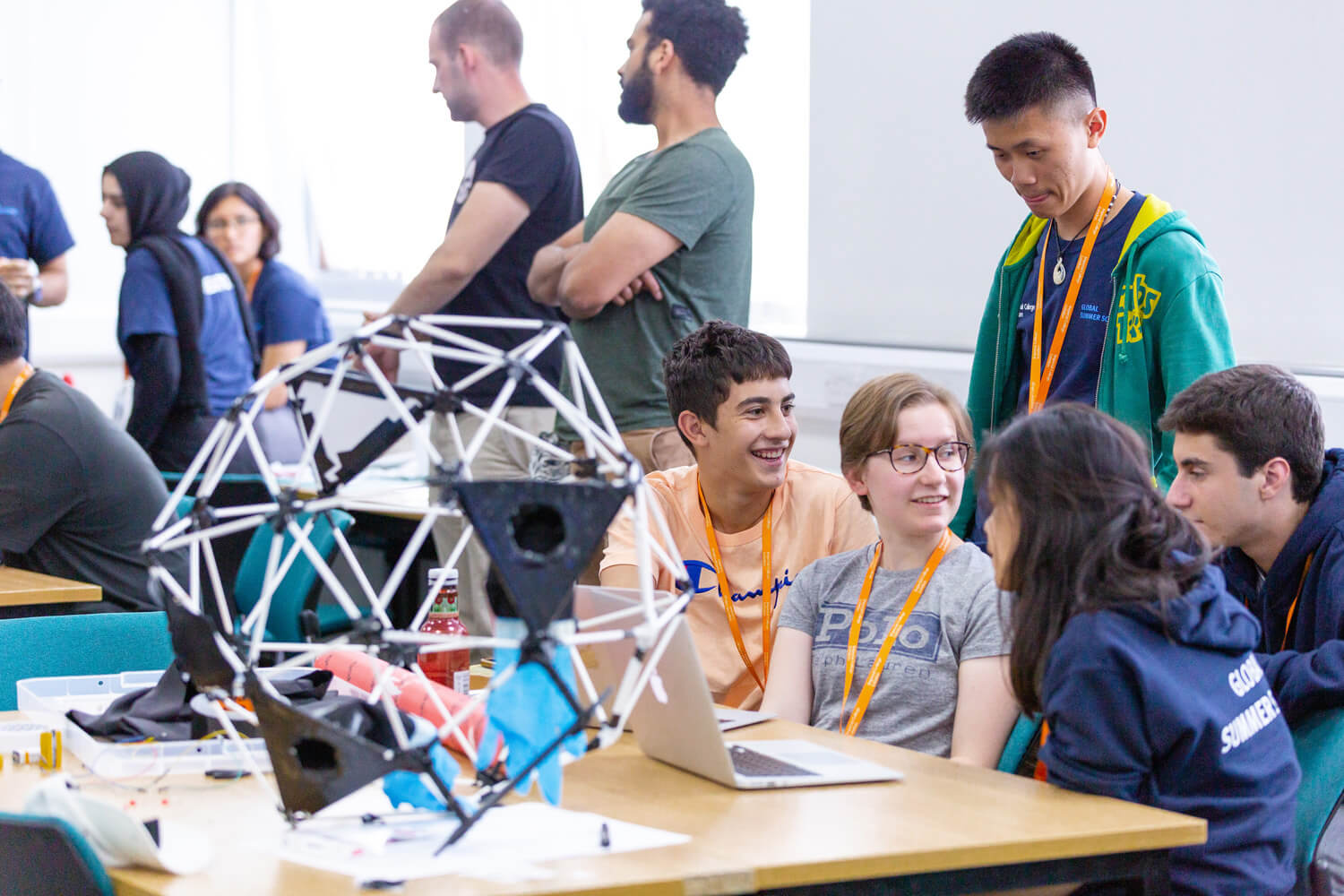
It goes without saying that the technology sector is becoming one of the most popular industries of our time, attracting aspirants from across the globe with very diverse backgrounds. With the right skill set, their resumes are often placed at the top of high stacks.
Since professionals who have mastered the art of doing good business are just as sought-after, plenty of crossovers already exist between both industries. Today, graduates capable of bridging the gap between tech and business are considered to be the ones that will make a bigger impact.
The demand makes perfect sense. The Fourth Industrial Revolution has brought forth technological advances many never thought would be possible, such as autonomous transport, advanced materials, artificial intelligence, machine learning, biotechnology and more. In order to keep up, business leaders will need a new set of skills that facilitates fresher approaches to finance, management, development and more.
Thankfully, some of the world’s finest universities have programmes known for producing graduates that measure up. Whether you have set your sights on a Fortune 500 or Fortune Global 500 company, these are the universities that will help you get there:
University of Illinois, Urbana-Champaign
Companies are sitting on troves of data that can be used to identify opportunities, make business decisions, and increase revenue. The ability to analyse and make strategic business decisions from the data, however, is a skill few have.
Those with technology degrees who are interested in moving into managerial roles and are passionate about fields such as data analytics, data science, and privacy and ethics of information might find the University of Illinois, Urbana-Champaign’s MS in Information Management (MS/IM) programme ideal.
Offered under its School of Information Sciences (iSchool)— a top destination for information professionals — this STEM-designated programme prepares graduates to use today’s growing information resources to address organisational and social challenges.
The MS/IM curriculum is very flexible; students can create a tailor-made degree or follow one of the iSchool’s highly sought-after professional pathways: Data Science and Analytics or Knowledge Management and Information Consulting. Students at the iSchool benefit from world-class teaching and research led by faculty who take an interdisciplinary approach toward solving information problems.
MS/IM alum have the combination of socio-technical systems, knowledge representation, and data analytics needed to connect data resources to achieve organisational goals in a variety of sectors including government, industry and non-profits. The program empowers students with practical skills to use data resources that are available today along with the theoretical foundations to shape the future.
The iSchool’s career services team offers students critical and substantive career guidance and developmental experiences to support successful professional outcomes. Some examples of the job titles MS/IM graduates hold include Data Scientist, Digital Technology Analyst, and Risk Analyst.
Visit us today to learn more!
Imperial College London
Numbers are big at Imperial College London. In fact, its Department of Mathematics is internationally renowned for its offerings –– from excellent library facilities, substantial computing power and central IT advisory service to outstanding teaching, world-changing research, and more. These were set in place to train professional mathematicians and statisticians keen on solving scientific and technological problems.

With an MSc Statistics (Data Science), students explore theoretical and applied statistics to solve scientific and technological problems. Source: Imperial College London
With an MSc Statistics (Data Science), students explore theoretical and applied statistics to achieve just that. The programme focuses on a wide variety of tools and techniques related to the scientific handling of data at scale; including machine learning theory, data transformation and representation, data visualisation, and the use of analytic software.
In just one year, learners will gain a range of transferable skills to programme, solve problems, think critically, write scientifically, work on projects effectively, and present new discoveries with confidence. These competencies enable them to take on prominent roles in a wide array of employment and research sectors.
In the autumn and spring terms, students pursue core and optional modules — which are 66.67% weighting — while in the summer, they conduct a research project. The latter runs full time from May to September, where students work with a member of academic staff on a state-of-the-art research problem that suits their interests.
University of Queensland
The University of Queensland has been delivering quality, world-changing academic offerings for over a century. Today, it is one of Australia’s leading research and teaching institutions, renowned for being home to numerous industry leaders that double as educators. Together, they deliver a relevant education to over 55,300 students –– 16,000 of which hail from around 134 different countries.

Those vying to translate data to solve global problems learn to do just that with the Master of Business Analytics. Source: University of Queensland
They come here to future-proof their careers in various ways. Those vying to translate data to solve global problems learn to do just that with the Master of Business Analytics. This programme draws on business, data science, and philosophy insights to offer learners a hybrid, holistic understanding of business analytics and their application.
In fact, key focuses of the programme include the responsible use of artificial intelligence; ethics and strategy; and methods used to interpret analytics for social, cultural, and environmental business opportunities.
It’s a unique perspective waiting to be explored, especially ideal for those looking to make the best business decisions possible with the help of data. Despite it’s flexible, online nature, the programme is still experiential. Students draw on industry case studies, participate in tailored professional development opportunities, and complete a team-based project in their final year.
Technical University of Munich
Located in the heart of Munich, TUM School of Management is no stranger to intersections. Here, interdisciplinary teaching and research in management, engineering, natural and life sciences attract talents from all over the world.

The Master in Finance and Information Management enables students to develop their own perspectives while pushing current finance and digital technologies forward. Source: Technical University of Munich
Its history of bridging gaps dates back to 2002 when the university was founded. To this day, it continues to focus on future trends and real-world solutions to advance innovation-based businesses and ultimately improve society.
One of its more topical, versatile programmes is the Master in Finance and Information Management. This programme offers learners the chance to study the unique combination of both disciplines, enabling them to develop their own perspectives while pushing current finance and digital technologies forward. At the same time, they learn to manage big data while integrating technology and entrepreneurship.
That’s not all. In just four semesters, the programme also grants insights to the current development in digital finance.
It teaches students to manage digital transformation and disruption, apply data processing, leverage analysis and preparation techniques, and design the power grid of the future. This multifaceted approach ensures every graduate is granted one golden ticket to multiple career paths.
*Some of the institutions featured on this article are commercial partners of Study International







